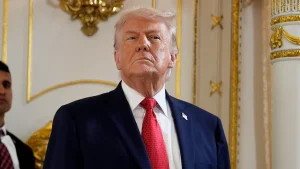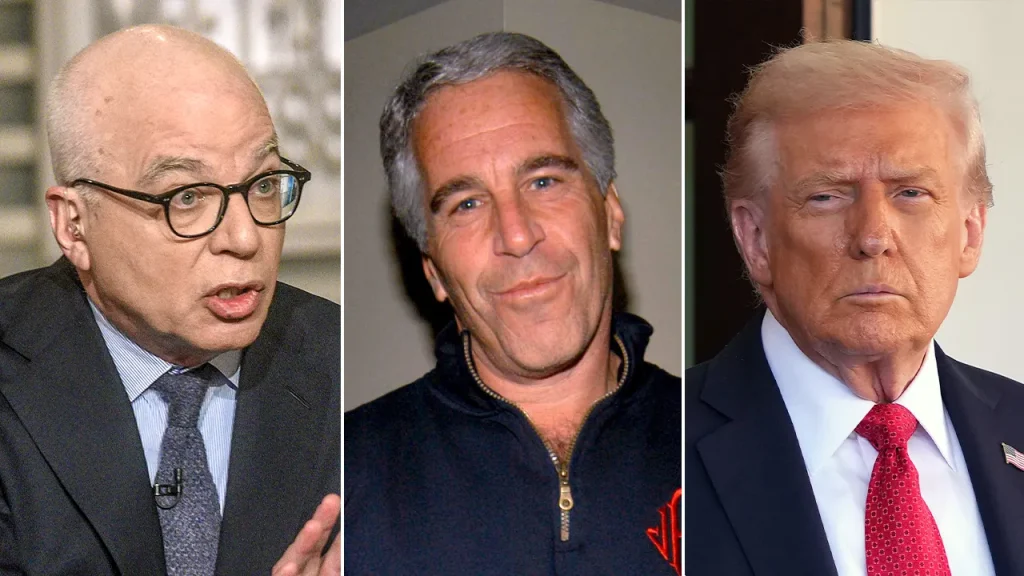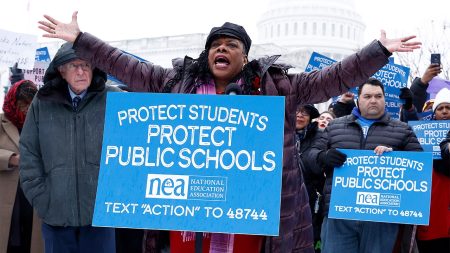Uncovering the Epstein Files: New Revelations from House Oversight Committee
In a dramatic political showdown, the House Oversight Committee released tens of thousands of pages of documents related to Jeffrey Epstein, including revealing emails between the late sex trafficker and prominent journalists. This development came just hours after the White House accused Democrats of selectively leaking certain Epstein communications. The newly released documents have drawn particular attention to exchanges between Epstein and Michael Wolff, the well-known writer and biographer, showing how Epstein sought media strategies to rehabilitate his tarnished image while leveraging political connections. These revelations emerge against a backdrop of partisan tension, with Republicans and Democrats each accusing the other of using the Epstein saga for political advantage during a contentious government funding battle.
The correspondence between Epstein and Wolff reveals a relationship where the writer repeatedly reached out to Epstein, often discussing strategies to improve the financier’s public image. In February 2016, Wolff warned Epstein, “NYT called me about you and Trump. Also, Hillary campaign digging deeply. Again, you should consider preempting.” A month later, as James Patterson’s book “Filthy Rich” about Epstein was nearing release, Wolff suggested that “becoming an anti-Trump voice gives you a certain political cover which you decidedly don’t have now.” Wolff appeared dismissive of Patterson, noting that while the crime novelist “can be counted on to produce a bestseller,” he isn’t “regarded as a serious writer.” Wolff warned that the Trump-Clinton angle would amplify attention to Epstein’s case “10-fold, in fact, possibly, a hundred fold.” The communications show Wolff seeking introductions to Trump’s inaugural committee chair Tom Barrack and former federal prosecutor Kathy Ruemmler while researching his book about Trump’s first 100 days in office. He also inquired whether former President Bill Clinton would confirm he had never visited Epstein’s private Caribbean island, something Clinton has repeatedly denied. The emails indicate Wolff and Epstein were planning to meet as recently as May 2019, just months before Epstein died in federal custody.
Among the more curious items in the document release were a short video of a dog with chew toys modeled after Donald Trump and Hillary Clinton, and presentations from an advisor strategizing how to improve Epstein’s search engine results following his child trafficking conviction. Perhaps most notable was a cryptic email from Epstein to his accomplice Ghislaine Maxwell dated April 2, 2011, stating, “I want you to realize that that dog that hasn’t barked is Trump. [VICTIM] spent hours at my house with him…he has never once been mentioned. Police chief. etc. I’m 75% there.” Officials later revealed that the redacted name referred to Virginia Giuffre, a prominent Epstein accuser who died by suicide earlier this year. White House Press Secretary Karoline Leavitt was quick to note that “Giuffre repeatedly said President Trump was not involved in any wrongdoing whatsoever and ‘couldn’t have been friendlier’ to her in their limited interactions.” Leavitt further emphasized that “President Trump kicked Jeffrey Epstein out of his club decades ago for being a creep to his female employees, including Giuffre.”
The timing of these document releases has intensified the already heated political environment in Washington. Democrats released their selection of documents while Republicans countered with a much larger trove, each side seemingly attempting to control the narrative. Trump himself weighed in on Truth Social, accusing Democrats of trying to divert attention from their role in the government shutdown impasse: “The Democrats cost our Country $1.5 Trillion Dollars with their recent antics of viciously closing our Country… There should be no deflections to Epstein or anything else.” The former president urged Republicans to stay focused on “opening up our Country, and fixing the massive damage caused by the Democrats.” This back-and-forth underscores how the Epstein case continues to be wielded as a political weapon by both parties, even years after his death.
The Epstein saga represents one of the most troubling chapters in recent American history, exposing networks of power, privilege, and predation. Epstein initially received what many considered a lenient plea deal in 2008 for child sex crimes before being arrested again in 2019 on more serious trafficking charges. His death in federal custody before trial left many questions unanswered and fueled conspiracy theories. His longtime companion Ghislaine Maxwell was subsequently convicted of grooming and trafficking girls and young women for him, though she continues to maintain her innocence while appealing her conviction. The newly released documents provide fresh insights into how Epstein attempted to navigate his public persona after his initial conviction and how he leveraged connections with journalists and other influential figures to potentially shape narratives about himself.
These document releases highlight the complex intersection of power, politics, media, and justice that continues to characterize the Epstein case. While the full implications of these revelations are still unfolding, they offer a disturbing glimpse into the networks that enabled Epstein’s crimes and the strategies he employed to minimize their consequences. The partisan framing of these releases also demonstrates how even the most serious matters of justice can become political footballs in Washington’s polarized environment. As investigations continue and more documents potentially come to light, the public is left to grapple with uncomfortable questions about wealth, influence, and accountability in American society. What remains clear is that beneath the political posturing lies a tragic story of exploitation and abuse that affected numerous victims, many of whom continue to seek justice and closure.











